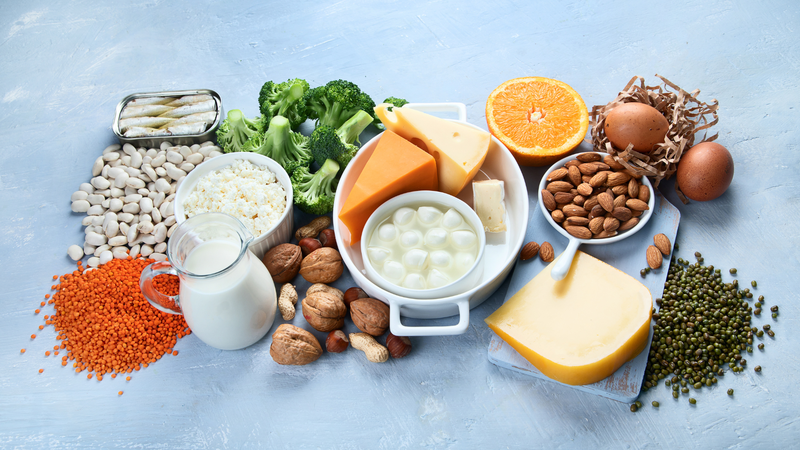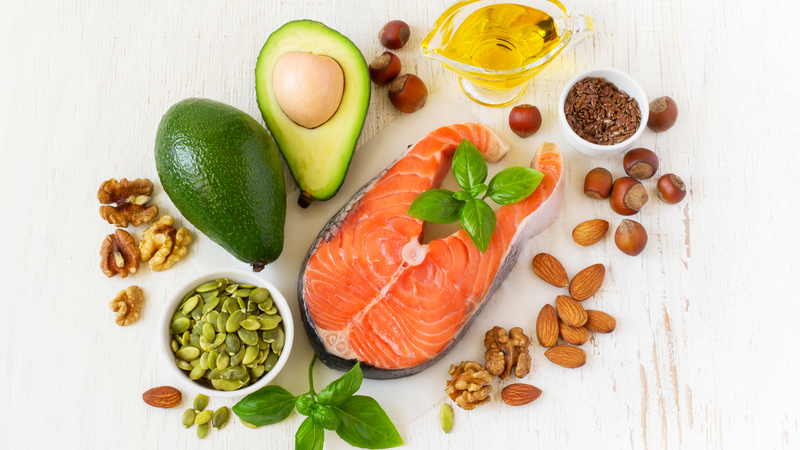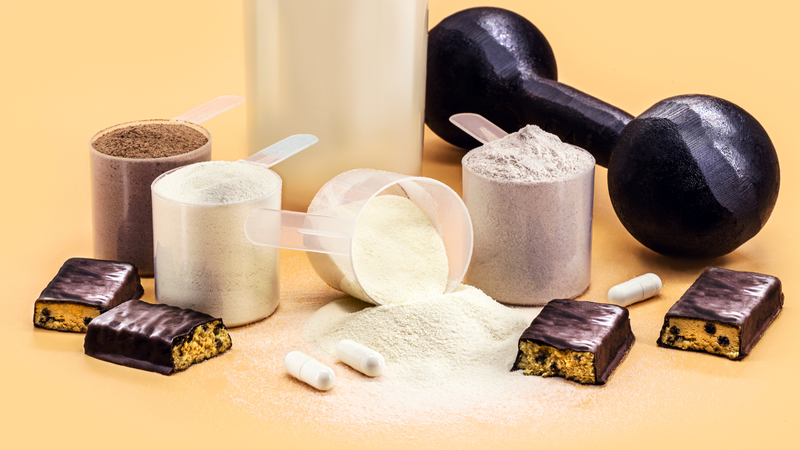Building muscle is not just about protein, but also requires many other essential nutrients to optimize muscle recovery and growth. Let’s explore 5 muscle-building nutrients other than protein and how they contribute to supporting sustainable muscle growth.
When it comes to muscle building, protein is often the first nutrient that comes to mind. However, to develop optimal muscle growth, the body needs many other nutrients besides protein. These nutrients not only support protein synthesis but also play an important role in muscle recovery and growth. In this article, we will explore 5 muscle-building nutrients other than protein.
Carbohydrates
Carbohydrates are the body’s main source of energy, especially during physical activities. When exercising, the body uses glycogen, a form of carbohydrate stored in the muscles and liver. Without enough glycogen, the body cannot perform at high intensity, leading to fatigue and reduced exercise capacity.
In addition to providing energy, carbohydrates also support the recovery process. When carbohydrates are consumed after exercise, the body will regenerate glycogen, helping to restore energy for the next exercise session. Good sources of carbohydrates include whole grains, fruits, vegetables and legumes.

Discover 5 nutrients that help build muscle besides protein
Healthy Fats
Fat is not only a great source of energy, but it also plays an important role in overall health, including muscle health. Healthy fats, such as omega-3s and omega-6s, help reduce inflammation and aid in recovery after exercise. Omega-3s, in particular, can reduce muscle soreness and improve recovery, helping you get back to training sooner.
Fats are also essential for the absorption of fat-soluble vitamins A, D, E, and K, which have a direct impact on muscle health. Sources of healthy fats include salmon, chia seeds, flaxseeds, avocados, and vegetable oils like olive oil.

Fat is also necessary for the absorption of some vitamins.
Creatine
Creatine is a naturally occurring compound in the body, primarily found in muscles. It helps provide energy for short, high-intensity activities, such as weight lifting or sprinting. Creatine supplementation may increase exercise capacity, thereby promoting muscle growth.
Research shows that creatine can help improve exercise performance, increase strength and muscle mass. In addition to being taken in pill or powder form, creatine is also found in foods such as red meat and fish. However, for optimal results, creatine supplementation should be taken in conjunction with a well-balanced diet and exercise regimen.

You can supplement creatine in pill or powder form.
Vitamin D
Vitamin D is commonly known for its important role in bone health, but it also has a significant impact on muscle health. Research shows that vitamin D can help increase muscle strength and reduce the risk of injury. It aids in the absorption of calcium, which is needed for muscle contraction and nerve function.
Vitamin D deficiency can lead to muscle weakness and reduced exercise capacity. Natural sources of vitamin D include sunlight, fatty fish such as salmon and mackerel, as well as dairy products and eggs. For people who live in areas with little sunlight, vitamin D supplementation may be necessary.
Essential Minerals
In addition to vitamins, certain minerals are also important for building muscle. Two of the most important minerals are calcium and magnesium.
Calcium is not only essential for bone health, but also plays an important role in muscle contraction. A lack of calcium can lead to muscle weakness and spasms. Rich sources of calcium include dairy products, green vegetables such as kale and broccoli, and nuts.
Magnesium helps support muscle and nerve function. It plays a role in protein synthesis and providing energy to muscles. Magnesium deficiency can lead to muscle cramps and fatigue.

For optimal muscle growth, the body needs many nutrients other than protein.
To build muscle effectively, you need to focus not only on protein but also on other nutrients such as carbohydrates, healthy fats, creatine, vitamin D and essential minerals. Adequate supply of these nutrients not only improves exercise performance but also supports muscle recovery and growth. A balanced and varied diet combined with a reasonable training program will help you achieve your health and fitness goals.





